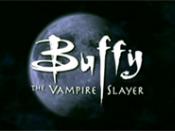The specific slant found within the program formula for "Buffy the Vampire
Slayer" (BTVS) is unique in both film and television: the lead character is a
female world-saver who belongs to no government organization, who seldom
relies on men for help, who is not an androgyne and who has a curfew. The series
was created and continues to be meticulously overseen by Academy Award
winning writer Joss Whedon. Whedon writes for his female characters with
particular care to maintain the validation of the feminist viewpoint. Until feminists
quit taking pot shots at each other and arrive at a mutually agreed upon
definition of feminism, and for the purposes of this paper, "feminism" will be
considered the empowering of the female who takes control of her life to the
extent that such control directly affects her well-being and future. Ignoring the
psychological and mythological doublespeak used by many feminists, this paper
will discuss the manner in which Whedon and his cadre of carefully chosen writers
deal with feminist issues vis-Ã -vis character development.
Buffy has another side, however - she is a good girl (more or less) who minds her
mother (unless a house rule conflicts with her slaying duties) and keeps her
amazingly frilly and feminine room neat. Buffy misses her father, to the extent
that a rejection by her father was manifested as her worst nightmare coming
true. She turns to Giles, her Watcher, for guidance and sometimes regrets it. He
lectures her on her slayer duties - "Buffy, when I said you could slay vampires
and have a social life, I didn't mean at the same time" - until she must resort to
slyness just to get a night off. Feminists decry feminine-wile manipulation but
several female characters on BTVS are guilty of just such guile; Buffy uses...


